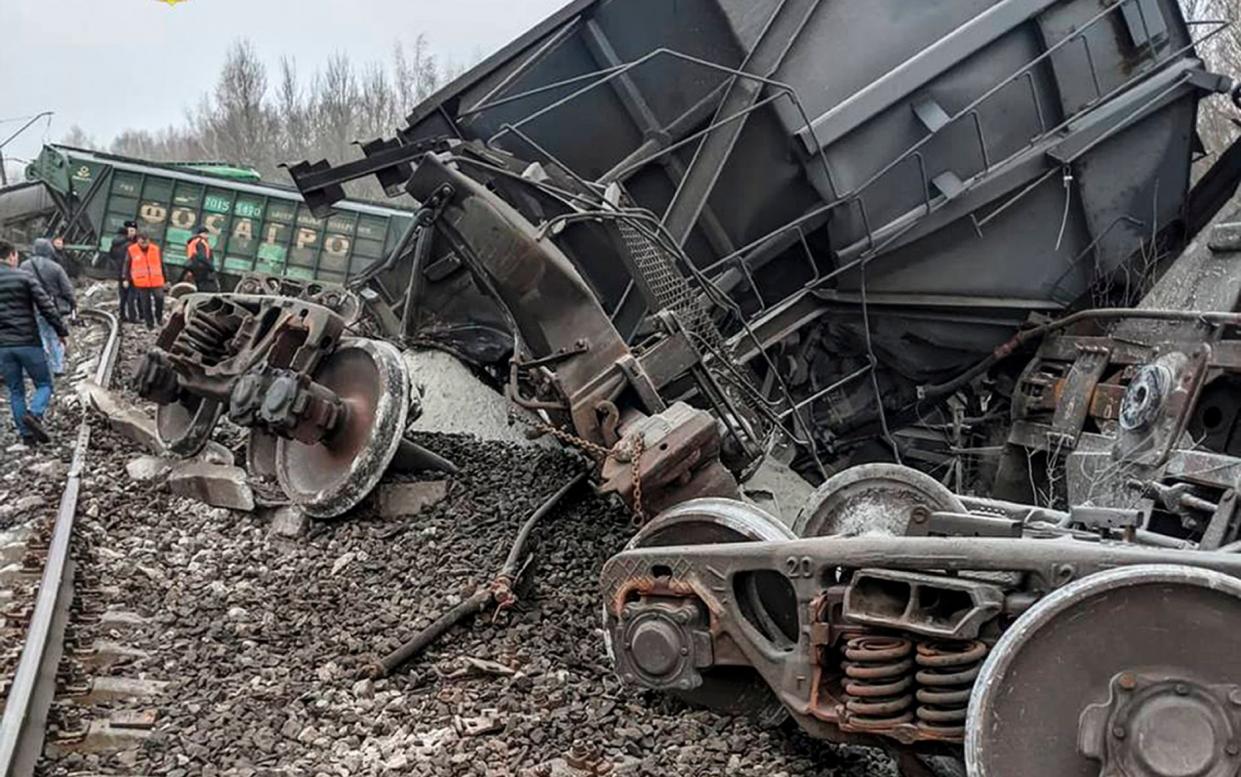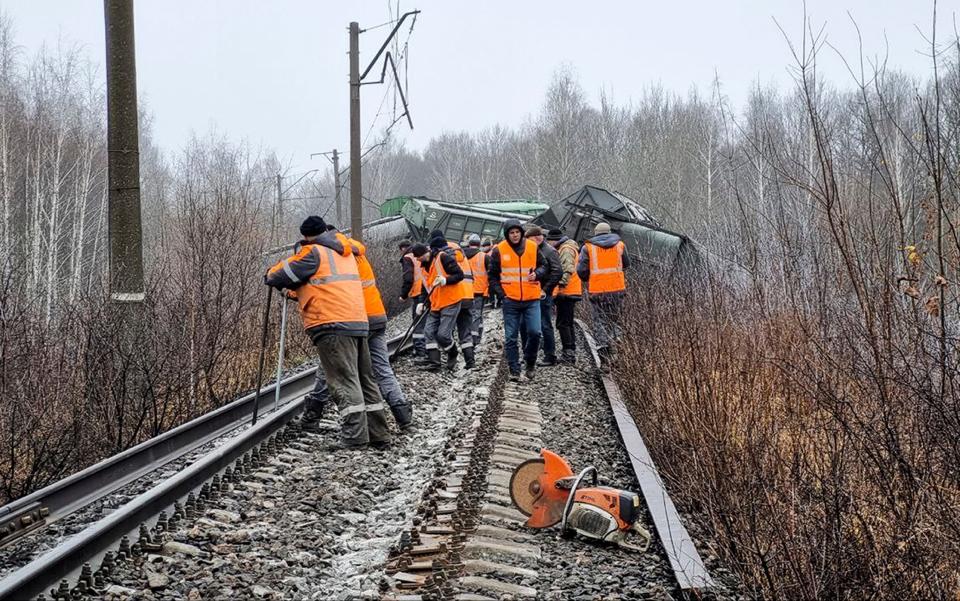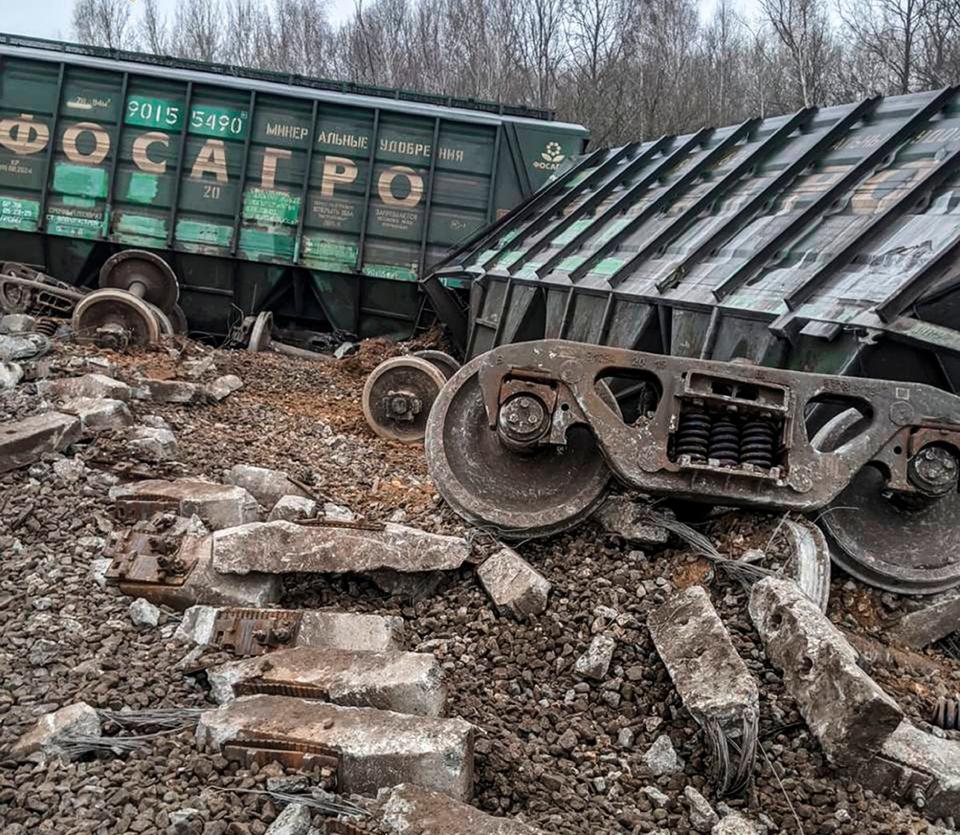Suspected sabotage derails freight train deep inside Russia

Suspected saboteurs have blown up a railway line in central Russia, derailing a freight train and triggering a police manhunt.
Moscow Railway said the attack took place at dawn in the Ryazan region, roughly 100 miles southeast of the Russian capital.
“As a result of intervention by unauthorised people on the railway system, a freight train with 19 wagons derailed,” it said. Nobody was hurt.
Various Russian news Telegram channels quoted security sources as saying that there was an explosion on the track just before the train derailed and that police were now searching for saboteurs.
Photos from the site showed wagons badly damaged, lying twisted and broken on their sides.

Officials have reported several sabotage attacks on railway lines throughout Russia over the past year, which have slowed military supplies to the front line. The military uses Russia’s extensive train network to shift weapons and soldiers to its forces in Ukraine.
An explosion was also reported at a gunpowder factory outside Moscow on Friday night. Police have not yet cited the cause. In June, explosions at the same factory, which were blamed on construction workers not adhering to safety rules, killed five people.

The Kremlin has banned opposition to its war in Ukraine but there are still small pockets of resistance and regular reports of arson attacks on Russian army recruitment offices.
The war in Ukraine has ground down to a front-line slog with a heavy reliance on artillery. The Kremlin has reoriented its economy towards producing shells and weapons for the war and has also signed weapons deals with North Korea and Iran.
Ukraine’s allies have found it harder to increase weapon supplies. On Saturday, the US-funded Radio Free Europe/Radio Liberty reported that EU officials had now admitted that they would miss their target of sending one million artillery shells to Ukraine in the year to the end of February 2024
“The process is not moving as quickly as we had hoped,” Radio Free Europe quoted one unnamed EU official as saying.

 Yahoo News
Yahoo News 
